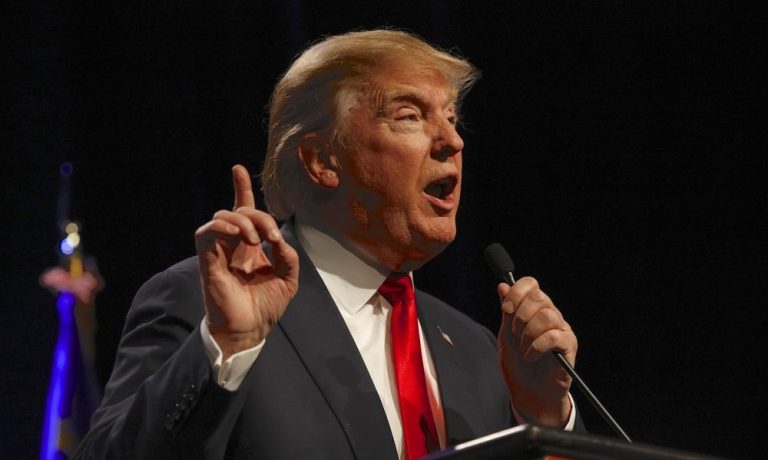Trump Threatens 10 Pct Tariff On iPhones Made In China

Days before a summit with Chinese President Xi Jinping, President Donald Trump warned that he might slap a 10 percent tariff on iPhones and laptops imported from China.
“Maybe. Maybe. Depends on what the rate is,” Trump said in an interview with The Wall Street Journal (WSJ). “I mean, I can make it 10 percent, and people could stand that very easily.”
Apple‘s products are currently exempt from the tariffs, but the company’s stock was down nearly 2 percent in after-hours trading. While Apple declined to comment on this recent report, there has been speculation that Apple would have to raise prices on some of its products if they were subject to the tariff on Chinese imports. If the tech giant doesn’t raise prices, it could take a hit to profit margins.
In addition, Trump said he expects to move ahead with raising tariff levels on $200 billion of Chinese goods to 25 percent, adding that it is “highly unlikely” that he would accept Beijing’s request to hold off on the increase. If negotiations aren’t positive for the U.S., reports said Trump won’t hesitate to place tariffs on the Chinese imports that are currently not subject to duties.
“If we don’t make a deal, then I’m going to put the $267 billion additional on” at a tariff rate of either 10 percent or 25 percent, he said.
In July, it was reported that Trump’s current tariffs on billions of dollars’ worth of imported Chinese goods were already starting to take a toll on the Chinese economy, and could usher in a bigger stimulus for the country.
Data showed that business activities in the country slowed in July, reflecting the first data point that includes the impact of U.S. tariffs. The paper also noted that signs of the slowing economic expansion are growing, pointing to declining investments in factories and “anemic” household consumption, just as defaults among corporations are increasing.